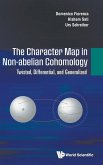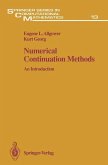Please note that the content of this book primarily consists of articles available from Wikipedia or other free sources online. In differential topology, given a family of Morse-Smale functions on a smooth manifold X parameterized by a closed interval I, one can construct a Morse-Smale vector field on X × I whose critical points occur only on the boundary. The Morse differential defines a chain map from the Morse complexes at the boundaries of the family, the continuation map. This can be shown to descend to an isomorphism on Morse homology, proving its invariance of Morse homology of a smooth manifold. Continuation maps were defined by Andreas Floer to prove the invariance of Floer homology in infinite dimensional analogues of the situation described above; in the case of finite-dimensional Morse theory, invariance may be proved by proving that Morse homology is isomorphic to singular homology, which is known to be invariant. However, Floer homology is not always isomorphic to afamiliar invariant, so continuation maps yield an a priori proof of invariance.







